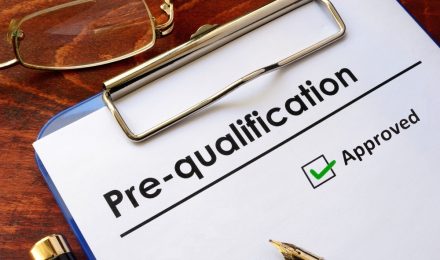At the point when you are purchasing land, a home or different properties, there are sure expenses related with that exchange far in excess of the expense of the land or property. These expenses are regularly paid when responsibility for land or property is moved from the earlier proprietors to you, the new proprietors. The exchange occurs at a land “shutting” and the expenses are designated “shutting costs.” Closing expenses ordinarily incorporate an extraordinary expenses and charges related with getting a home loan credit in the event that you are taking a home loan to buy the home, yet in addition expenses and charges related with the exchange of the actual land.
What are Closing Costs and How Are They Determined?
The sum owed in shutting expenses and charges can shift extraordinarily contingent upon a few key factors, for example, whether realtors and legal counselors are engaged with your credit, where you live and whether you are taking a home loan. Large numbers of these end expenses and charges are determined in light of a level of the price tag of the home or property, while others might be level rate expenses determined by the home loan bank and others engaged with assisting you with getting a home loan credit.
A few instances of shutting expenses include:
Commission to the purchaser’s and merchant’s realtor. Normally, six percent absolute commission is paid-three percent to the purchaser’s representative and three percent to the dealer’s representative.
Credit beginning expenses or potentially application charges. Regularly, there is some expense for beginning your home loan credit. Banks or loan specialists might charge a level expense, for example, an “guaranteeing” or “application” charge separate to or notwithstanding the start charge, or these expenses may be generally wrapped up into one expense. They may likewise charge you an expense equivalent to a level of how much cash acquired. These expenses and expenses can change enormously from one moneylender to another, so make certain to look around and figure these charges while contrasting the expenses of various credits.
Advance markdown focuses. Credit markdown focuses are basically a purchase down of your loan fee. You will pay a one-time cost equivalent to 1 level of the sum you are getting to bring down your credit loan fee by some assigned sum (for the most part somewhere in the range of .125 and .25 percent). Loan specialists might expect you to purchase a point or you might decide to do as such.
Evaluation costs. This is the expense of having an expert evaluate the market worth of your property. Generally, a level expense is charged in spite of the fact that it very well might be a higher charge for additional costly properties, more mind boggling properties and business properties.
Credit report expense. This is a little expense that is charged by the home loan moneylender to pull your credit report. This ought not be more than $50 or somewhere in the vicinity.
Investigation expenses. You might pay a home reviewer preceding shutting to investigate the home for any potential issues, or the moneylender might require and pay for a controller and you would be supposed to pay this expense at shutting.
Settlement and shutting expenses. At the point when you finish everything with a house credit, a settlement specialist or a lawyer or title organization commonly readies the reports as a whole. They should be paid for this help. Normally, this is a level rate charge and these expenses might be parted between both purchaser and merchant.
Title search and title protection charges. A title search is led to guarantee that the property will move to you liberated. Title protection ensures the inquiry and shields you from any future amazement claims on your property. The expenses for a title search might be a level charge however the charges for title protection are commonly equivalent to a level of the worth of the property or potentially to a level of the credit sum.
Government charges. Many charges are paid to the bureaucratic and state government at a land shutting including move expenses and report or exchange costs. Commonly, the expense of these charges depends on the home loan sum or potentially the price tag sum.
These expenses are charged in basically all land closings and are essentially a piece of the expense of purchasing a home or property. Extra expenses may be charged also including charges for lawyers assuming that you or the vender are addressed; favorable to evaluated charge installments made to the merchant; supportive of appraised interest to the bank; public accountant expenses; charges for the readiness of reports; confidential home loan protection expenses; and protection costs for flood and risk protection. As a rule, with the expenses and charges, it is all normal for shutting expenses to rise to a few thousand bucks relying upon the worth of the home or property bought.
At the point when you are purchasing land, a home or different properties, there are sure expenses related with that exchange far in excess of the expense of the land or property. These expenses are regularly paid when responsibility for land or property is moved from the earlier proprietors to you, the new proprietors. The exchange occurs at a land “shutting” and the expenses are designated “shutting costs.” Closing expenses ordinarily incorporate an extraordinary expenses and charges related with getting a home loan credit in the event that you are taking a home loan to buy the home, yet in addition expenses and charges related with the exchange of the actual land.
What are Closing Costs and How Are They Determined?
The sum owed in shutting expenses and charges can shift extraordinarily contingent upon a few key factors, for example, whether realtors and legal counselors are engaged with your credit, where you live and whether you are taking a home loan. Large numbers of these end expenses and charges are determined in light of a level of the price tag of the home or property, while others might be level rate expenses determined by the home loan bank and others engaged with assisting you with getting a home loan credit.
A few instances of shutting expenses include:
Commission to the purchaser’s and merchant’s realtor. Normally, six percent absolute commission is paid-three percent to the purchaser’s representative and three percent to the dealer’s representative.
Credit beginning expenses or potentially application charges. Regularly, there is some expense for beginning your home loan credit. Banks or loan specialists might charge a level expense, for example, an “guaranteeing” or “application” charge separate to or notwithstanding the start charge, or these expenses may be generally wrapped up into one expense. They may likewise charge you an expense equivalent to a level of how much cash acquired. These expenses and expenses can change enormously from one moneylender to another, so make certain to look around and figure these charges while contrasting the expenses of various credits.
Advance markdown focuses. Credit markdown focuses are basically a purchase down of your loan fee. You will pay a one-time cost equivalent to 1 level of the sum you are getting to bring down your credit loan fee by some assigned sum (for the most part somewhere in the range of .125 and .25 percent). Loan specialists might expect you to purchase a point or you might decide to do as such.
Evaluation costs. This is the expense of having an expert evaluate the market worth of your property. Generally, a level expense is charged in spite of the fact that it very well might be a higher charge for additional costly properties, more mind boggling properties and business properties.
Credit report expense. This is a little expense that is charged by the home loan moneylender to pull your credit report. This ought not be more than $50 or somewhere in the vicinity.
Investigation expenses. You might pay a home reviewer preceding shutting to investigate the home for any potential issues, or the moneylender might require and pay for a controller and you would be supposed to pay this expense at shutting.
Settlement and shutting expenses. At the point when you finish everything with a house credit, a settlement specialist or a lawyer or title organization commonly readies the reports as a whole. They should be paid for this help. Normally, this is a level rate charge and these expenses might be parted between both purchaser and merchant.
Title search and title protection charges. A title search is led to guarantee that the property will move to you liberated. Title protection ensures the inquiry and shields you from any future amazement claims on your property. The expenses for a title search might be a level charge however the charges for title protection are commonly equivalent to a level of the worth of the property or potentially to a level of the credit sum.
Government charges. Many charges are paid to the bureaucratic and state government at a land shutting including move expenses and report or exchange costs. Commonly, the expense of these charges depends on the home loan sum or potentially the price tag sum.
These expenses are charged in basically all land closings and are essentially a piece of the expense of purchasing a home or property. Extra expenses may be charged also including charges for lawyers assuming that you or the vender are addressed; favorable to evaluated charge installments made to the merchant; supportive of appraised interest to the bank; public accountant expenses; charges for the readiness of reports; confidential home loan protection expenses; and protection costs for flood and risk protection. As a rule, with the expenses and charges, it is all normal for shutting expenses to rise to a few thousand bucks relying upon the worth of the home or property bought.







